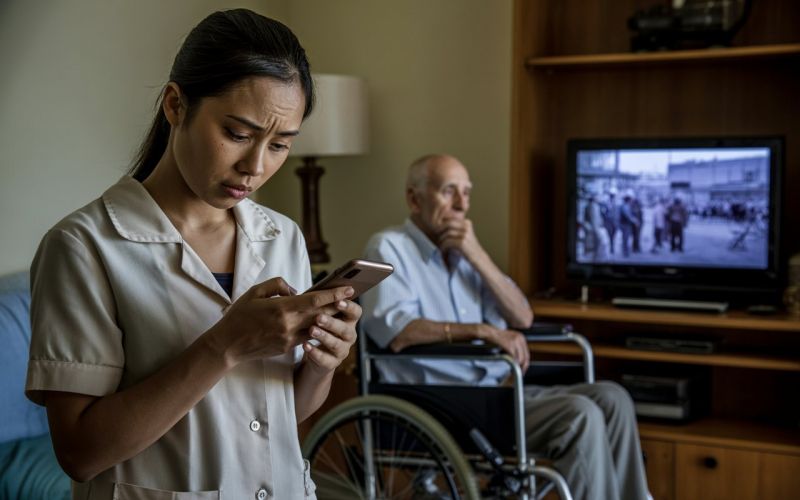How to Spot Fake News During War: A Simple Guide for Caregivers in Israel
iSavta | 20.06.2025

As a caregiver in Israel, you might be spending your free time on Facebook, TikTok, YouTube, or WhatsApp. These platforms are great for staying connected with your family and friends. But lately, because of the ongoing war between Iran and Israel, there has been a flood of scary news, emotional videos, and shocking images online. Some of these are real—but many are not.
Fake news and propaganda are now spreading faster than ever, and some of them are made using advanced Artificial Intelligence (AI). These fake posts are designed to confuse people, make them angry, or create fear. If you don’t know how to spot them, it can badly affect your mental health. You might feel anxious, stressed, or helpless—and that’s not good, especially when you're working as a caregiver.
Here’s a simple guide to help you protect yourself and your mind.
1. Check the Source
Before believing any news or sharing it, check where it came from. Is it from a trusted news company like BBC, Reuters, or Times of Israel? Or is it from a random Facebook page or TikTok account you’ve never heard of?
If the page or person has no full name, no real photo, or just started recently, it’s probably not a reliable source.
2. Be Careful with Videos and Images
Today, fake videos and photos made with AI look very real. You might see a video of people crying, soldiers hurting civilians, or children in danger. But these might not be from the current war—or not real at all.
Here are some red flags:
-
No date or location shown
-
Poor audio or lip-sync
-
The people in the video don’t blink or move naturally
-
It shows something too shocking or unbelievable
If you're not sure, don’t share it.
3. Look for the Same News on Other Sites
If you see a breaking news headline that sounds scary or shocking, check if other trusted news websites are also reporting it. If it’s only on one unknown site or social media page, it might be fake.
Example: If one Facebook post says “War will reach Tel Aviv tomorrow,” check if major news outlets say the same thing. If not, it’s likely false or just a rumor.
4. Be Wary of Emotional Tricks
Many fake news posts are written to make you angry, sad, or scared. They often use words like “SHOCKING!” or “MUST SEE!” to get your attention.
Remember, real news gives facts. Fake news tries to control your feelings.
5. Don't Share Right Away
If something makes you emotional, take a deep breath before clicking “share.” Ask yourself:
-
Is this information true?
-
Will it help others—or just make them scared?
Spreading fake news can create panic. As caregivers, we want to support each other, not cause more fear.
6. Protect Your Mental Health
Constantly watching violent or sad content can affect your mood and energy. You might find it hard to sleep, feel easily irritated, or feel hopeless. This is called “doomscrolling”—when you keep reading bad news again and again.
Take breaks from social media. Talk to friends, watch funny or happy videos, or spend time in nature. It’s okay to disconnect for a while to protect your mental health.
The war is already hard for everyone in Israel. As caregivers, we need to stay calm, strong, and focused—not just for ourselves but also for the people we take care of.
Be wise. Don’t believe everything you see online. Learn to spot fake news and propaganda. Protect your peace of mind. And remember: When in doubt, don’t share it out.
Stay safe. Stay smart. You are not alone.
Read more about Personal Wellness

Personal Wellness
Making 2026 a Successful Year as a Migrant Caregiver: Simple Steps That Truly Matter
Read More
Personal Wellness
New Year Away From Home: How Migrant Caregivers in Israel Can Find Meaning, Hope, and Strength in 2026
Read More
Personal Wellness
Celebrating Christmas in Israel: Simple Ways to Feel the Holiday Spirit Even When People Around You Don’t Celebrate
Read More
Personal Wellness







